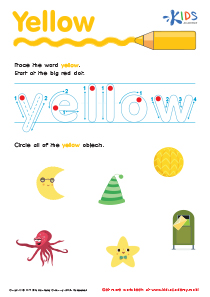Writing practice Normal English for Beginners Worksheets for Ages 4-5
6 filtered results
-
From - To
Discover our "Writing Practice Normal English for Beginners Worksheets for Ages 4-5" page, specially designed to support young learners in mastering English writing skills. These engaging and educational worksheets aid in the development of fine motor skills, proper pencil grip, and the basics of letter formation. Each worksheet combines fun activities such as tracing lines, shapes, and letters to keep children motivated. Ideal for English learners and homeschoolers, these resources lay a solid foundation for future writing success, making learning an enjoyable adventure. Visit Kids Academy to empower your child’s early writing journey today!
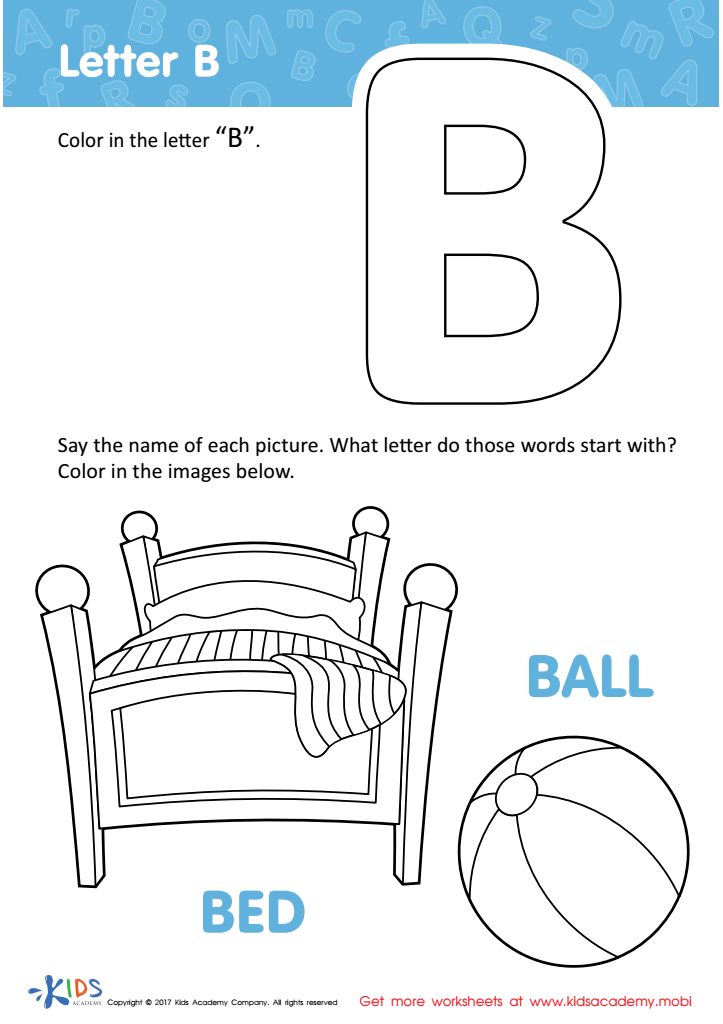

Letter B Coloring Sheet


Letter A Coloring Sheet


Letter H Tracing Page
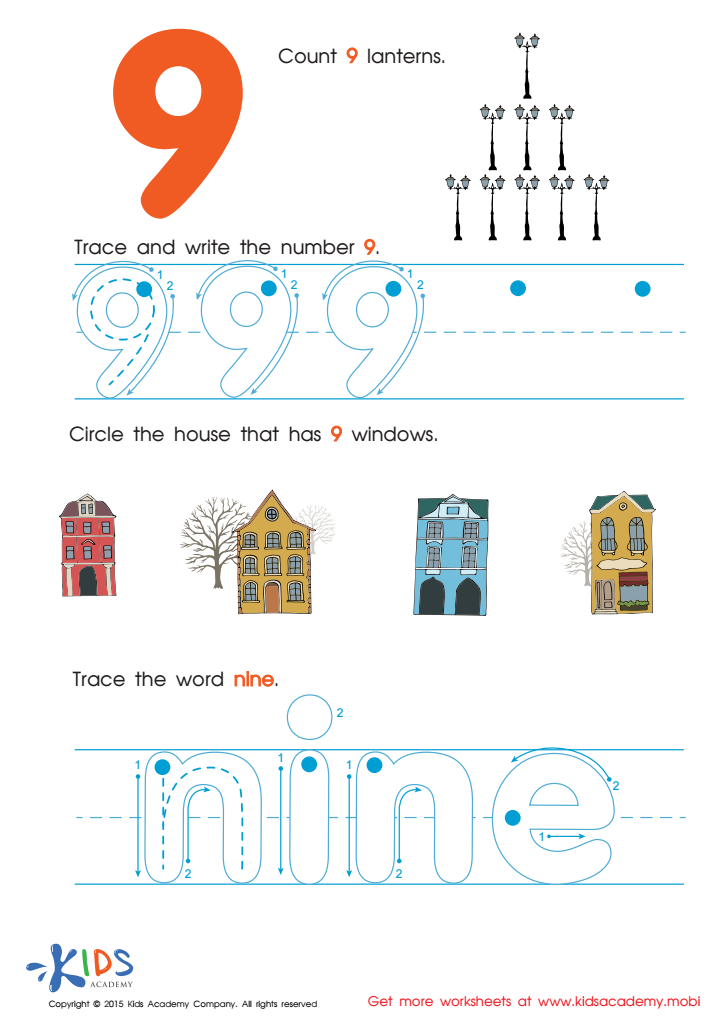

Tracing And Learning to Write Number 9 Worksheet
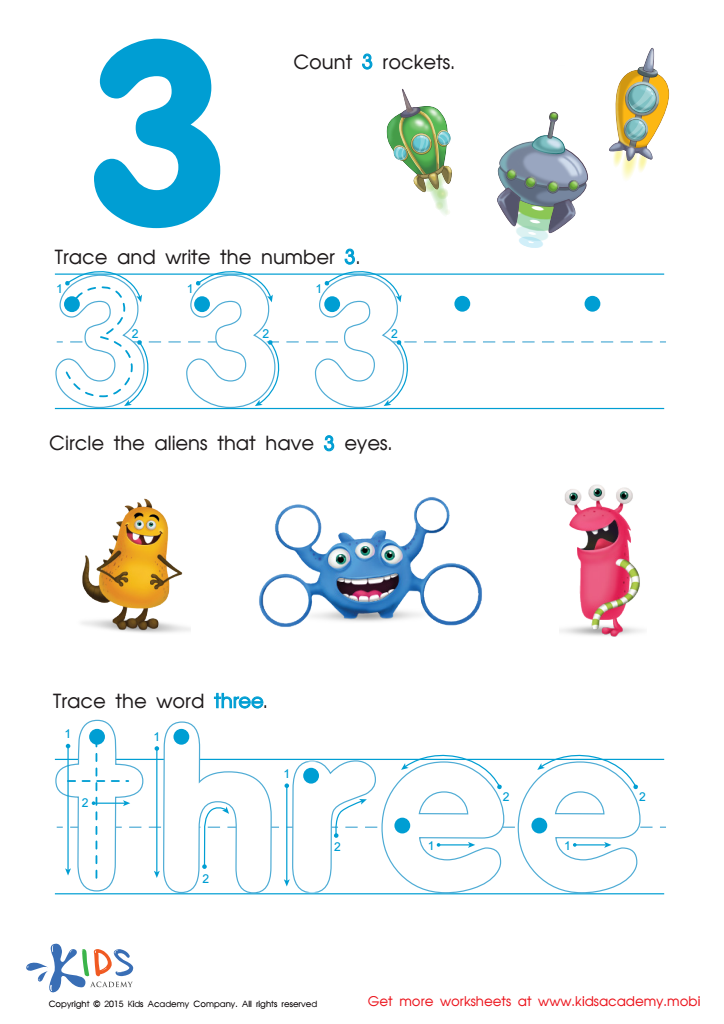

Learning Number Three Worksheet
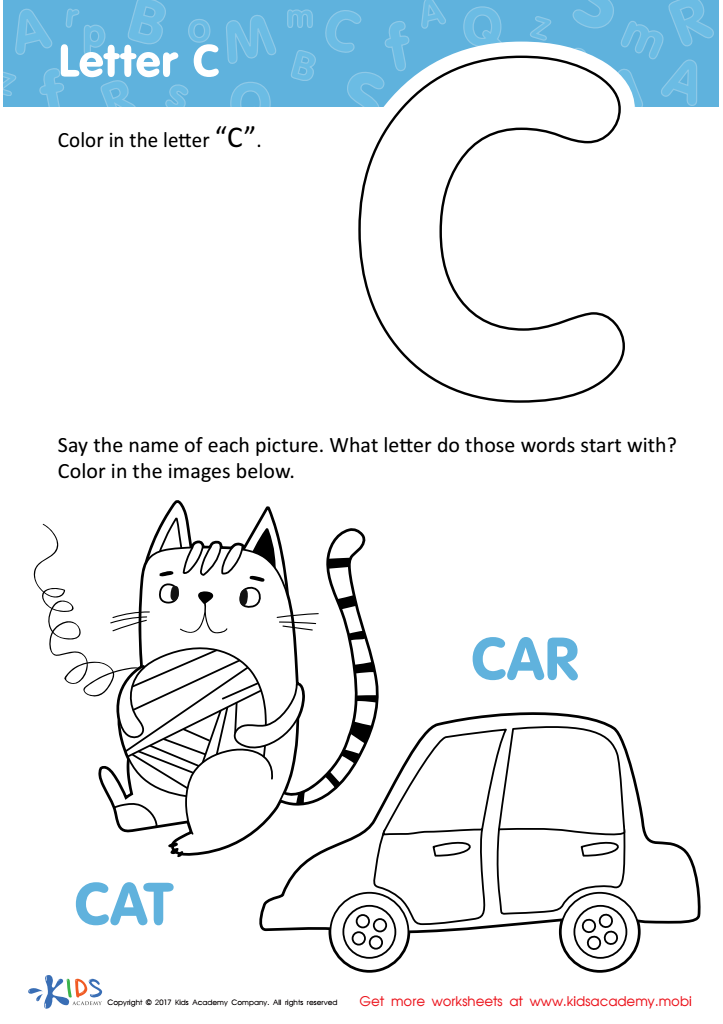

Letter C Coloring Sheet
Parents and teachers should prioritize writing practice for beginners ages 4-5 because these foundational years are crucial for cognitive and language development. Engaging in writing activities helps children learn how to express their thoughts, ideas, and emotions creatively and coherently, contributing to better communication skills.
At this age, children are also developing fine motor skills, and writing helps strengthen their hand muscles and improve hand-eye coordination. Consistent practice in forming letters, words, and simple sentences enhances their dexterity, preparing them for other tasks requiring precision, like using scissors or tying shoelaces.
Furthermore, early writing practice enhances children's understanding of the alphabet and phonics, promoting literacy. They grasp how letters form words and how words convey meaning, paving the way for reading proficiency, which is crucial for academic success across all subjects.
Writing also fosters critical thinking and problem-solving skills. As children attempt to convey stories or describe objects, they learn to organize their thoughts logically and coherently. This, in turn, supports overall cognitive development.
Lastly, the sense of accomplishment gained from practicing and improving in writing can boost confidence and foster a love for learning. By supporting early writing practice, parents and teachers set a strong foundation for a child’s future educational journey.
 Assign to My Students
Assign to My Students










